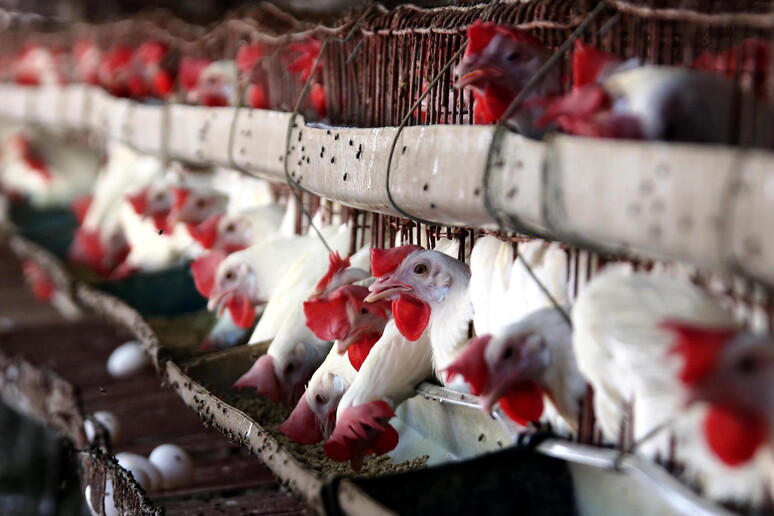A case of the so-called
'Newcastle disease', caused by a highly virulent avian virus,
has been identified in a small flock of 14 farmyard chickens in
northeastern Slovenia, the Slovenian news agency STA reports
today. While the virus only causes mild conjunctivitis in
humans, it can wreak havoc on entire flocks. Authorities
suggested that breeders should take precautionary bio-protective
measures, including vaccination to prevent the Avian
Paramyxovirus-1 (APMV-1) infecting their flock, STA said.
In some instances, the virus may result in asymptomatic cases,
while in others, it can cause a systemic infection and result in
the death of entire flocks. If breeders observe a water and feed
consumption decrease of over 5%, a 5% decrease in egg
production, or a die-off that exceeds the average by more than
fourfold, they should promptly notify their veterinarian.
ALL RIGHTS RESERVED © Copyright ANSA





